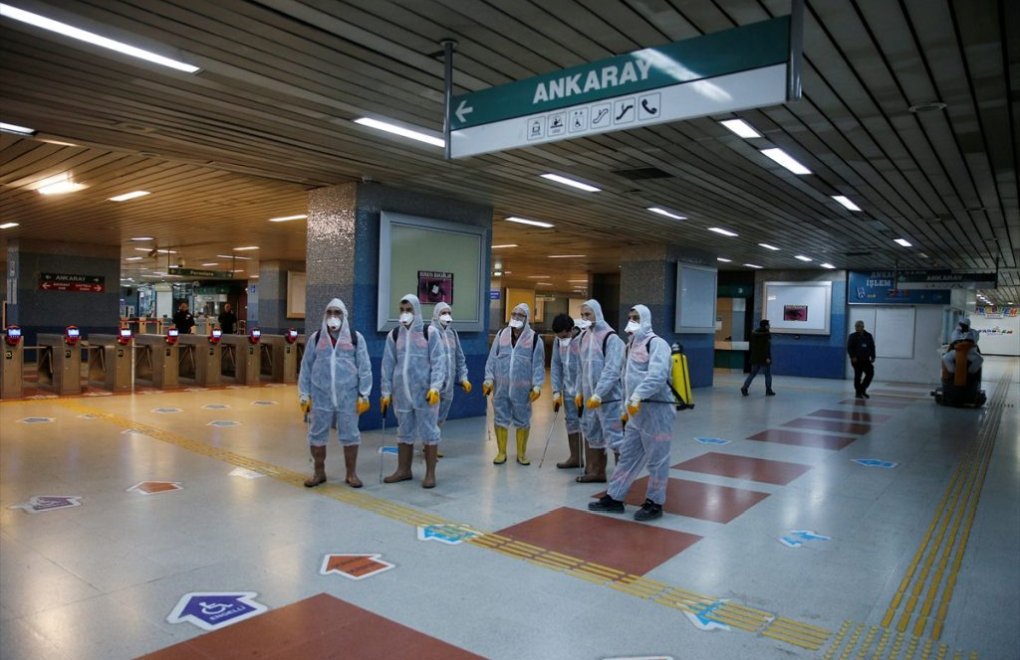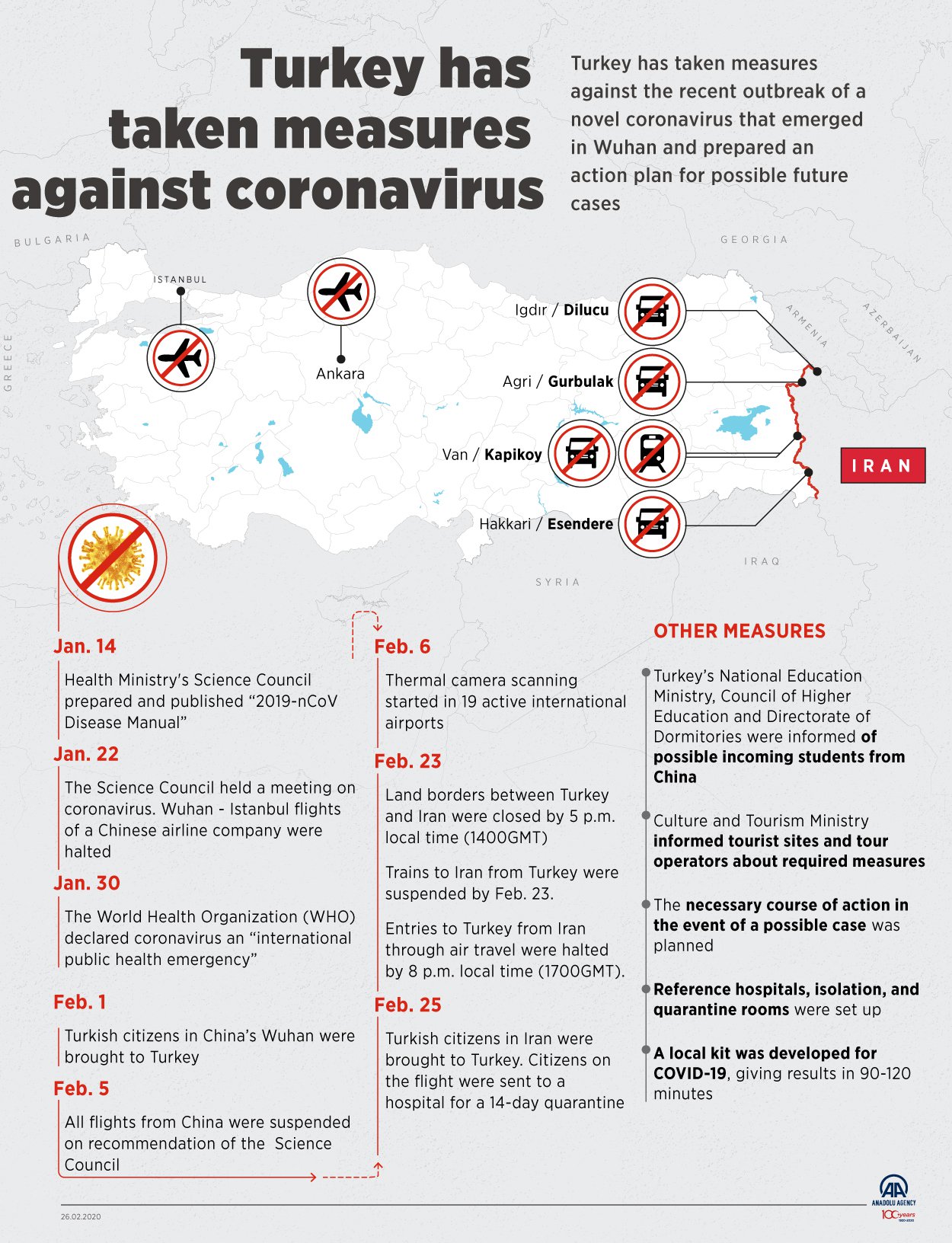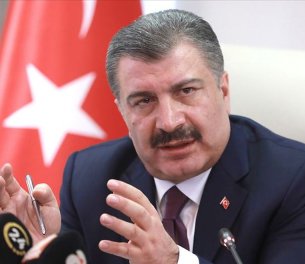Disinfection work in the capital Ankara's subway. (Photo: AA)
Since the outbreak of the coronavirus, now named as "Covid-19," began in China's Wuhan in December, it has now spread to at least 49 countries, according to an interactive map based on various sources, including the World Health Organization (WHO) and the EU Centre for Disease Prevention and Control.
Four of Turkey's six neighbors are among those countries: Iran, Iraq, Georgia and Greece. The other four neighbors, Bulgaris, Azerbaijan, Armenia and war-ridden Syria, have yet to report a case.
With 141 reported cases, Iran has become the epicenter of the outbreak in the Middle East, as the map by the John Hopkins University Center for Systems Science and Engineering shows. Twenty-six people died of coronavirus in the country, according to its health ministry.
What measures has Turkey taken so far?
Health Minister Fahrettin Koca admitted yesterday (February 26) that the virus is "at Turkey's doorstep now."
Turkey has announced that it closed land borders and canceled all passenger flights from and to Iran.
It has also been scanning all international passengers at airports with thermal cameras since February 6.
Over two hundred citizens have been brought to Turkey from China and Iran and tested for coronavirus. All the passengers tested negative.
Turkey has also set up field hospitals in the eastern provinces of Van and Iğdır, bordering Iran and the Nakhchivan Autonomous Republic of Azerbaijan respectively.
Reference hospitals, and isolation and quarantine rooms have been set up in the 81 provinces, according to the Health Minister.
The Ministry of Foreign Affairs advised the citizens not to travel to Iran and Italy, which has reported the highest number of cases in Europe.
The relevant authorities were informed of possible incoming students from China, the state-run Anadolu Agency reported.
The state-owned Turkish Airlines announced today that it has disinfected 250 aircraft so far.
Who are the most at risk?
Both the people and health personnel should be provided with preventive health services, Dr. Ali Karakoç, the secretary-general of Ankara Medical Chamber, told bianet.
"If we cannot provide preventive healthcare services to both society and healthcare professionals, it may have serious consequences," Karakoç said.
"Good nutrition, sewage and infrastructure systems, like the heating of sheltering places, are included in preventive health measures. These increase the resistance of the person," he added.
Considering that there are confirmed cases in its neighbors, the virus will "definitely" spread to Turkey, he said.
"Covid-19 is transmitted in the same way as other upper respiratory infections. With sneezing, coughing or contact... However, [its] incubation period is very long, ranging from 14 to 24 days. Therefore, suspicious cases should be quarantined immediately."
Mask prices are surging
It is now common to see people wearing surgical face masks in İstanbul, the largest city of Turkey, especially in public transport stations and vehicles.
However, with the increase in demand, the prices have also increased, as much as 2000 percent in some cases, according to a report by the state-run broadcaster TRT. "Masks went on the black market now," it said.
The prices of N95 surgical respirators, which filter 95 percent of particles in the air, have increased from 20 Turkish lira to around 450 lira at some retailers, the report stated (1 US dollar=6.17 Turkish lira).
Trade Minister Ruhsar Pekcan addressed the issue today, saying that they received complaints against eight companies over high prices.
Prices of the N95 masks vary between 14 lira and 250 lira at online retailers, according to cimri.com, a price comparison site. (VK)








-132.jpg)